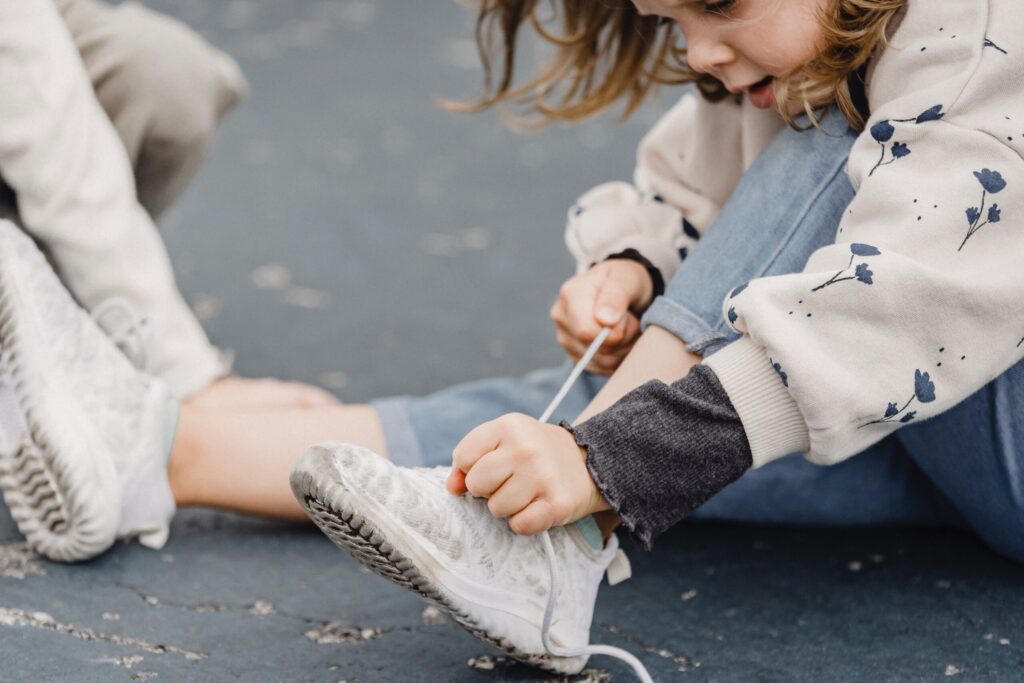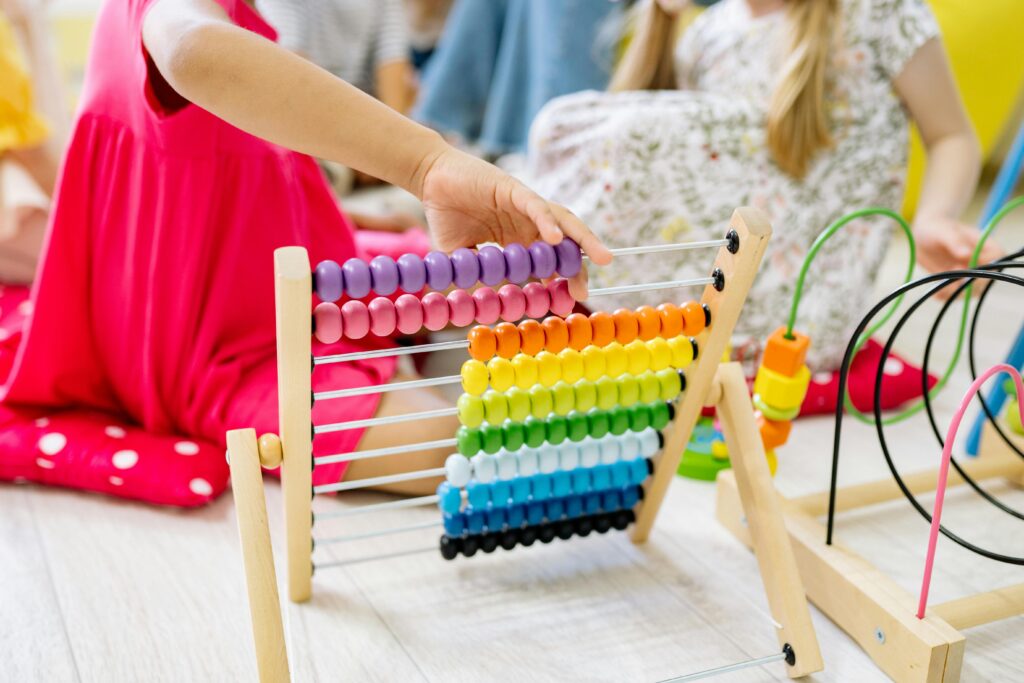
Moving from London to Paris made me realise that language is not the only difference that sets French kids apart. I look around the schools where my young daughters go, the playgrounds, and I see lots of confident-looking kids going about their lives without any parent hovering over them. They appear to be more independent at a younger age and are accomplishing things by themselves that I used to think would be challenging for kids of their ages.
Here are my thoughts on what could be contributing to this strong sense of independence in French kids.
1. School in France starts early
In France, schooling becomes mandatory from the age of three, with affordable daycare options available even earlier. In contrast to the UK, where parents often spend more time with their children during their early years, French parents are inclined to send their kids to daycare or nursery. Many mothers have shorter maternity leaves and return to work within a year, sometimes as early as six months after giving birth.
When my daughter started school at the age of three, the school required her to be entirely out of nappies. Luckily for us, she already was, but this expectation prompts French parents to initiate potty training at home earlier, knowing that the clock is ticking. Of course, accidents still occur, and that’s not frowned upon at school.
French children are taught clever tricks like putting on their coats and gloves by themselves. I notice that many parents drop off their children at the school’s front gate instead of lingering in the classroom, letting them make their way by themselves to their respective classes.
2. Boredom is not seen as a bad thing
I used to bring lots of colouring books and toys to occupy my kids at restaurants so I could have a minute of peace to read the menu, but I notice that French parents rarely resort to such measures. Instead, they encourage their children to figure out ways to keep themselves occupied without constant stimulation. Kids may get a small toy or a book, but otherwise, they are expected to use their imagination to figure out what they can do to keep busy. This “go with the flow” approach helps children develop the ability to play independently, eliminating the need for a continuous stream of toys and games to stay engaged.
When French parents visit each other at home, the adults usually spend most of the time talking, and children play alone in separate rooms. They will occasionally pop in to ask for a snack or something, but generally, they understand that children play separately, and they can come up with games to keep themselves busy. There is no constant entertainment by parents of their kids to keep them happy. French kids happily play by themselves.
3. No school uniforms
There are no school uniforms in French schools and children can choose what they want to wear. Some parents choose to lay out the preselected clothes for the day, but many parents let their children choose what they want to wear. It may not match or be what I would have preferred my kids to wear, but my kids have the freedom to make their own decisions before they even leave for school.
4. Drop off birthday parties and after-school activities
It’s very unusual for parents to stay with children when invited to a birthday party or during after school activities such as dance or sports from the age of about 6 years old. Parents are typically not even invited! They just drop off and pick up their kids.
At my daughter’s gymnastics school I saw very young girls being dropped off by parents at the front door of the venue, and they got changed by themselves in the changing room and just made their way to the gym without any help. The parents were allowed to observe the class but only a very small minority did. Mostly the kids were just picked up at the very end of the class.
5. Overnight school trips
From a young age, it is considered normal for French schoolchildren to participate in overnight or extended school trips away from home. In my daughter’s school, six and seven-year-old children go on a week-long trip to the French Alps or other parts of France every year. Kids typically share a room with one or two classmates, so they are always with others. There they get a real opportunity to practise all those daily tasks, like brushing their teeth, without any parent (nagging) to get it done.
I cannot imagine the same overnight trips at this age being the norm in the UK where we lived before.
6. Kids commute to school
I see more schoolchildren in Paris going to school on foot or by metro without their parents than I did in London. Of course, I am talking about older children, but it’s definitely more noticeable.
Even with younger children, I see that not all parents bring the kids right to the school door. Some drop them off some 20 metres from school and watch them as they make their way to the front school gate.
French parents are concerned about the safety of their children, but there is no panic or hyper-anxiety when it comes to safety of children being outside and playing outdoors. The kids are given the freedom to explore and experience life.
What do you think? Do you observe any differences in how French kids are brought up? I’d love to get your feedback in the comments below.




Really interesting observations Katherine! We’re thinking of moving to France with the family and between your blog and the book “Growing up bebe” it seems like it’s quite different. Both exciting and scary at the same time! 🙂
It’s always exciting and scary to make any change, especially as big as moving to a new country. Hope you give France a go – it’s a fantastic place to raise kids.
Thanks for this post, Katherine! A very accurate summary and we’ve made very similar observations since moving to Paris from London 7 years ago. I would add a couple of small precision points:
– French women tend to have even shorter maternity leaves than you mentioned, 2-3 months is quite typical. This is why the “creche” and “garde partager” system is so well-developed here as otherwise it would be impossible for new parents to return to work.
– School uniforms do exist, at least in our school. Maybe it’s a rare thing as I do see most school children in our district wearing normal clothes as well.
Loved your observation on no props in restaurants. We often forget them and end up “going with the flow” but I will start doing it deliberately now. 🙂
Great points! The full on uniforms like in the UK are still rare in France, it’s generally guidance for colours to be worn (blue/grey etc) which I think is great. Children can be creative, mismatched, as casual as they like etc